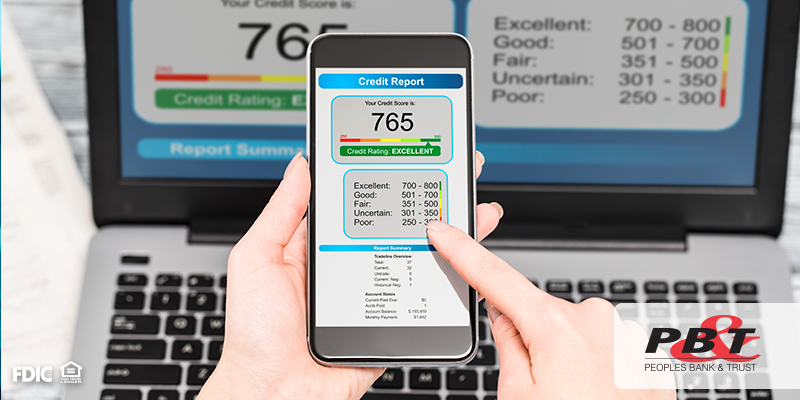
Minimizing your debt can always seem like a mountain of to-do lists. With various recurring payments, differing interest rates, and due dates that never seem to end, it’s easy to feel overwhelmed, and you’re not alone.
While having acredit card, or other outstanding debt, isn’t a situation anyone wants to find themselves in, a surprising 38.1% of American households carry credit card debt. Couple that with a total household debt average of $134,643.00 and the idea of debt starts to seem more common than you’d think!
While we know that having debt isn’t always the best solution, Peoples Bank & Trust is here to help you conquer it. We’ve found five proven ways to reduce your debt, and stop your spending habits from adding more! Take a look at the five tools below, and see if they help you become debt free!
- Find New Ways to Save: Whether it’s reducing your grocery bill, finding more affordable clothing options, or simply turning to the cash-only budget. There are numerous ways you can save. In fact, we recommend blogs such as The Simple Dollar, Making Sense of Cents, and Penny Hoarder to continue bolstering your savings knowledge.
- The Snowball Method: This is by far our favorite way to reduce your overall debts. While you may need to start with finding some new ways to save, once you can allocate some extra dollars, you can put this effective method in action, eliminating your debts. Simply pay the minimum amounts on all outstanding balances, and then using the surplus funds, add to your smallest payment to help pay it off sooner. Once your smallest debt is completely paid, you can rollover the funds being used for that into your next largest debt and so on. Repeat this process until all the debts have been paid off.
- Refinance Your Current Loans: The snowball method will help you erase debts one by one, however, using this strategy will consolidate those payments in one quick action. Speak with one of our dedicated lenders to see if your home mortgage or personal loan can be refinanced at a lower rate to save on monthly payments. This may make a small dent, but every little bit counts!
- Freeze the Credit Cards: In order to proactively prevent yourself from overspending, freeze all credit cards you currently have in your possession. This step helps you to force yourself to spend only what you have. If you decide to use cash only, the envelope system may help you save even further!
- Set Up Automatic Transfers: This one simple trick can save you hundreds each and every year! By using your online banking as a resource, you can use automation to ensure you are never tempted to spend those extra dollars. Instead of waiting for them to be spent, allocate them in your savings plan, and tuck them away for paying down debt or build your emergency fund to eliminate emergency debts.
However you and your family decide to decrease your household’s debt, Peoples Bank & Trust Co. is behind you! We’d love to talk about your family’s financial goals and help you identify the best tools to help you get there. Give us a call, or stop by your nearest branch to get started today.
Peoples Bank & Trust Co.
Member FDIC
Equal Housing Lender










